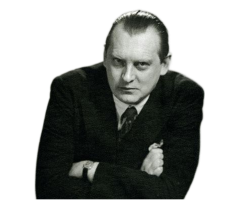
The Mysterious End of a Chess Legend: Unraveling the Death of Alexander Alekhine
28.03.2024 06:00 | HistoryIn 1946, the chess world was shaken by the sudden and enigmatic death of Alexander Alekhine, one of the greatest chess masters of his time.
His demise in Estoril, Portugal, not only left a void in the world of chess but also sparked numerous theories and speculations. This article delves into the circumstances surrounding Alekhine's death, explores the theories proposed over the years, and examines the impact of his passing on the chess community.
The Final Days
Alexander Alekhine, born in Moscow in 1892, rose to prominence in the chess world for his dynamic and imaginative style of play. By 1946, he had solidified his legacy, holding the title of World Chess Champion twice. However, his life was not without controversy, marred by accusations of collaboration during World War II and his struggles with alcoholism.
In March 1946, Alekhine was found dead in his hotel room in Estoril, Portugal. The official cause of death was asphyxiation due to a piece of meat lodged in his throat. Despite this, the simplicity of the death scene did not quell the rumors and speculations that quickly arose.
The Theories
Over the years, various theories have been proposed regarding Alekhine's death. Some speculated that his demise was not accidental but rather a murder, possibly motivated by his alleged wartime activities or personal vendettas within the chess community. Others suggested suicide, driven by depression and the fear of being unable to return to his beloved France due to his controversial past.
Further complicating matters, there were claims that the original autopsy report was inconclusive or tampered with, leading to calls for exhumation and re-examination in recent years. However, no conclusive evidence has been brought to light to support these theories firmly.
Impact on Chess
Alekhine's death marked the end of an era in chess. His innovative strategies and combative style had pushed the boundaries of the game, influencing generations of players. The immediate aftermath of his death saw the chess world struggling to fill the void left by his absence, with the title of World Champion remaining vacant until 1948, when FIDE organized a tournament to crown a new champion.
Summary:
Alexander Alekhine's death in 1946 remains one of the most intriguing mysteries in the chess world. Despite the official cause of death being asphyxiation, alternative theories have persisted, fueled by the circumstances of his life and the geopolitical tensions of the time. His passing not only left a legacy of chess brilliance but also a series of unanswered questions that continue to fascinate historians and chess enthusiasts alike. As we look back on his life and career, we are reminded of the complexity of human nature and the enduring impact one individual can have on a global community.
This format offers a comprehensive overview of Alexander Alekhine's death and its implications, suitable for a variety of purposes, from educational material to a feature article in a magazine or website dedicated to chess history.
